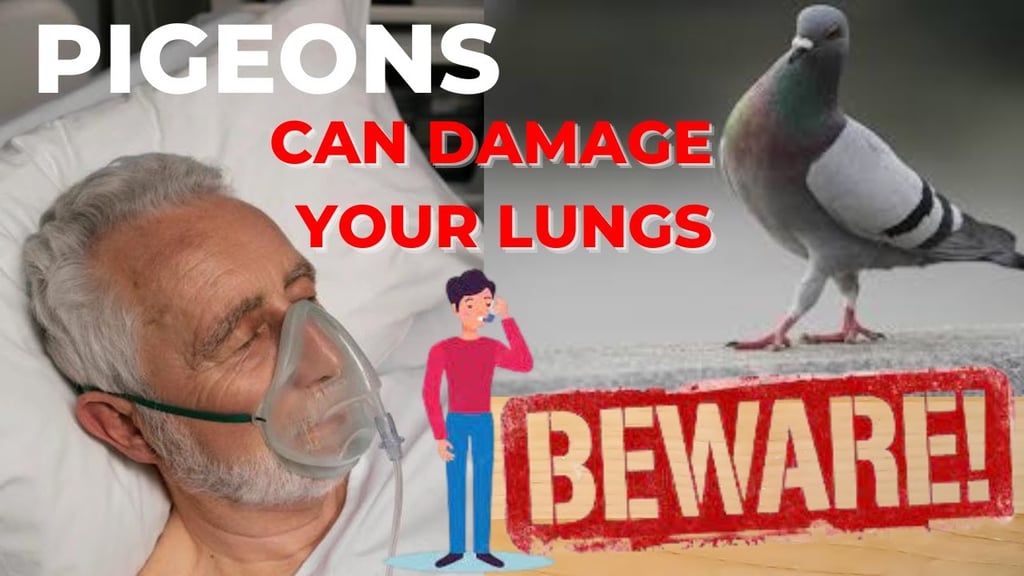Unmatched Prices in India with Exceptional Support. Call for assistance@ 91-9716612765
Pigeons: Urban Companions or Threats to Lung Health?
12/9/20242 min read


Pigeons are commonly seen in metropolitan areas, where they have adapted remarkably well to urban environments. These birds can often be spotted perching on rooftops, window ledges, and within public parks, where they gather in flocks, searching for food and socializing with one another. Their presence adds a unique charm to the cityscape, as they flutter about and coo softly, contributing to the natural ambiance of bustling urban life.
However, while pigeons may enhance the aesthetic and ecological atmosphere of the city, they also bring with them a range of health concerns that cannot be overlooked. One of the primary issues associated with pigeons is the potential for respiratory problems. Their droppings can accumulate in large quantities, especially in areas where they congregate, leading to unsanitary conditions. When these droppings dry out, they can become airborne, releasing harmful particles and pathogens into the air. Inhalation of these particles can trigger a variety of respiratory issues, including allergies, asthma, and other lung-related ailments.
While pigeons contribute to the vibrancy and liveliness of metropolitan areas, it is essential to recognize and address the health risks they pose. Balancing the enjoyment of these birds with public health considerations is crucial for maintaining a safe and healthy urban environment.
Pigeon feces are recognized for containing significant levels of histoplasmosis, a fungus that can cause respiratory infections in humans. When these droppings dry out, they may become airborne, increasing the risk of inhalation. This fungal infection predominantly affects the respiratory system, presenting symptoms that include fever, coughing, chest pain, and shortness of breath. In more advanced cases, it has the potential to spread to other organs within the body.
Here are several key points to consider when thinking on the concept of reducing risk:
Exclusions: To prevent pigeons from entering your building, it is essential to seal all potential entry points, such as cracks and openings.
Deterrents: Utilize bird netting, spikes, or reflective surfaces to deter pigeons from establishing nests on your property.
Sanitation: It is essential to routinely clean locations where pigeons gather, including balconies, window sills, and air conditioning units. For personal safety, it is recommended to wear a mask and gloves while undertaking the cleaning activities.
If you encounter any respiratory symptoms, it is essential to seek advice from a healthcare professional. They are equipped to diagnose any underlying health concerns and recommend appropriate treatment alternatives.
Disclaimer: The content presented in this blog post is intended solely for general knowledge and informational purposes and should not be interpreted as medical advice. It is essential to consult a qualified healthcare professional for any health-related concerns or prior to making any health-related decisions.
Products
Providing CPAP, BiPAP, and oxygen solutions online.
Support
Contact us
cpapandbipaphub@gmail.com
+91-9716612765
© 2024. All rights reserved.
cpapandbipaphub@gmail.com
